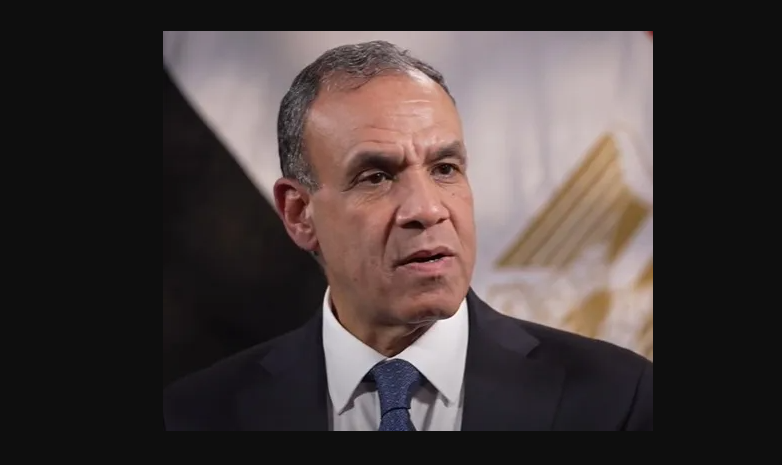Egyptian Foreign Minister Badr Abdelatty recently held phone talks with his counterparts from Oman and Iran, as well as with the US special envoy to the Middle East. The discussions focused on the third round of negotiations between the US and Iran, held in Muscat, Oman. The talks aimed to address Tehran’s nuclear program and the removal of US sanctions. Abdelatty expressed Egypt’s support for diplomatic efforts aimed at achieving stability and security in the Middle East through dialogue.
Ongoing Diplomatic Efforts in the Middle East
On Saturday, the third round of indirect talks between the United States and Iran took place in Muscat, Oman. The discussions, which also involved Egypt’s Foreign Minister Badr Abdelatty, revolved around key issues like Tehran’s nuclear program and the removal of US sanctions. The negotiations, which have been mediated by Oman, are part of ongoing efforts to ease tensions in the region.
Egypt’s Support for Diplomatic Initiatives
During his phone conversations with Omani Foreign Minister Sayyid Badr bin Hamad bin Hamood Albusaidi, Iranian Foreign Minister Seyed Abbas Araghchi, and US special envoy Steve Witkoff, Abdelatty reaffirmed Egypt’s support for initiatives aimed at finding political solutions through dialogue. Egypt has consistently emphasized the importance of diplomacy and peaceful negotiation to resolve conflicts and enhance regional stability.
Abdelatty also expressed his hope that the ongoing negotiations would lead to a balanced political settlement that could reduce tensions in the Middle East. This reflects Egypt’s long-standing position of advocating for stability and security in the region through constructive diplomacy.
The Role of Oman in Facilitating Dialogue
Oman has played a central role in facilitating the dialogue between the US and Iran. The Omani government has been a key mediator in the negotiations, helping to create a platform for both sides to address their differences. The first round of talks was held in Muscat on April 12, and the second round took place in Rome a week later.
The Omani government’s diplomatic efforts have been crucial in fostering communication between the two nations, which have been at odds over a range of issues, including Iran’s nuclear program and US sanctions. Oman’s involvement has been praised for its neutrality and commitment to promoting regional stability.
Iran’s Satisfaction with the Latest Round of Talks
Iranian Foreign Minister Seyed Abbas Araghchi expressed optimism about the latest round of negotiations. Speaking to reporters after the third round of talks, Araghchi highlighted the positive progress made during the discussions, particularly in relation to Iran’s nuclear program and the removal of US sanctions.
Araghchi noted that while the talks were indirect, they represented a significant step toward resolving some of the ongoing issues between the US and Iran. He added that the negotiations were productive and would continue to move forward.
US Special Envoy’s Involvement in the Negotiations
US Special Envoy to the Middle East, Steve Witkoff, has been an integral part of the US delegation in these talks. Witkoff, who has been involved in the negotiations from the start, emphasized the importance of diplomacy in addressing the complex issues at the heart of the US-Iran relationship.
In his statements following the third round of talks, Witkoff reiterated the US government’s commitment to pursuing a diplomatic solution. The US has expressed its willingness to engage with Iran in a manner that addresses both Tehran’s nuclear ambitions and the broader geopolitical concerns in the region.
Looking Ahead: The Future of US-Iran Relations
As the negotiations continue, both sides are focused on finding a path forward that ensures regional security and stability. The talks in Muscat have been described as constructive, with both Iran and the US showing a willingness to engage in dialogue despite their longstanding differences.
The outcome of these talks could have far-reaching implications for US-Iran relations and the broader Middle East. A successful resolution of the nuclear issue and the removal of sanctions could pave the way for a new phase in US-Iran relations, one characterized by greater cooperation and reduced tensions in the region.
The diplomatic efforts led by Oman and supported by Egypt, as well as the active involvement of the US and Iran, mark a significant step in addressing key issues related to Iran’s nuclear program and the lifting of US sanctions. While the road ahead remains complex, the ongoing negotiations are seen as an essential part of efforts to reduce tensions and promote stability in the Middle East. As the talks progress, all eyes will be on the potential outcomes and their impact on the future of US-Iran relations.


